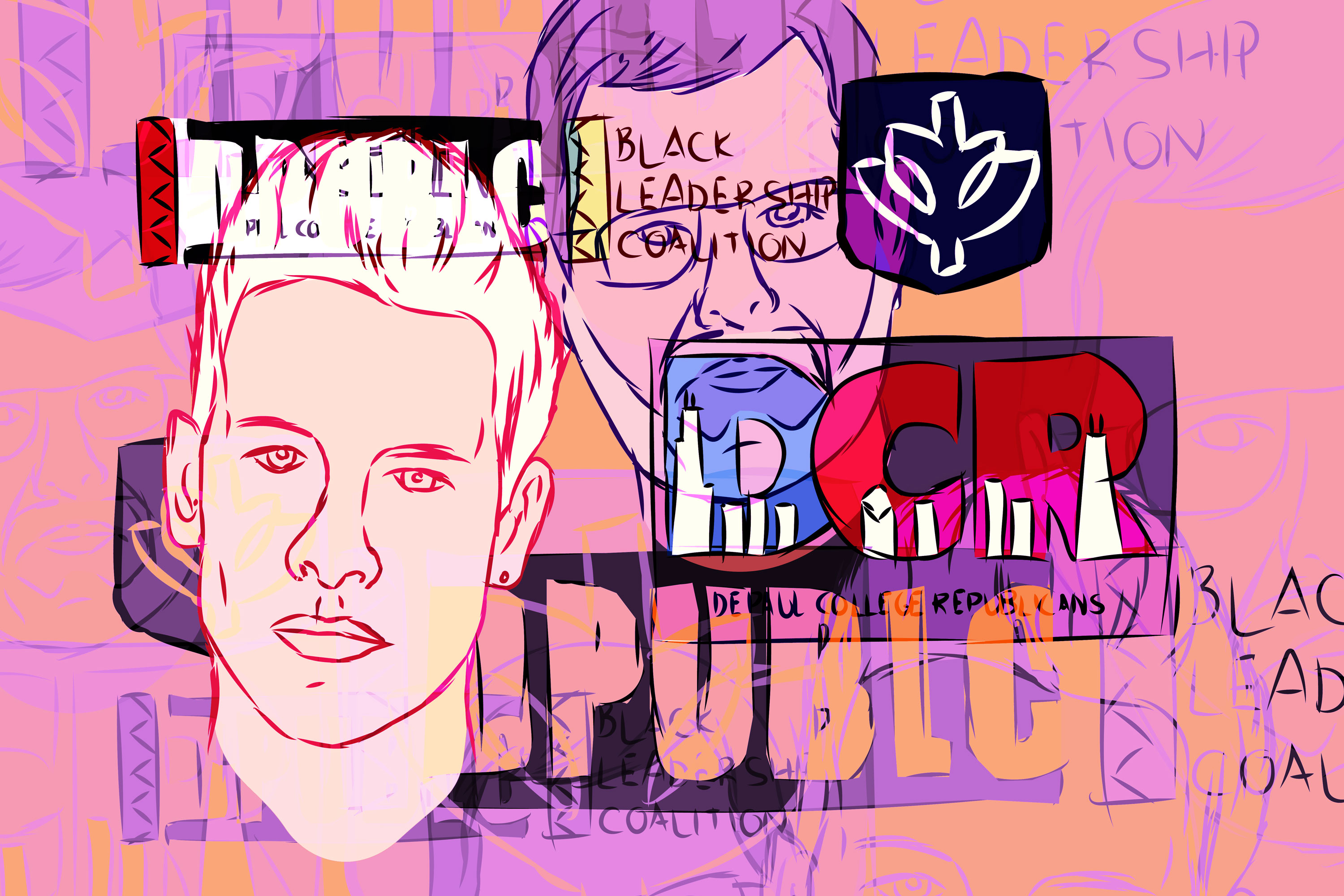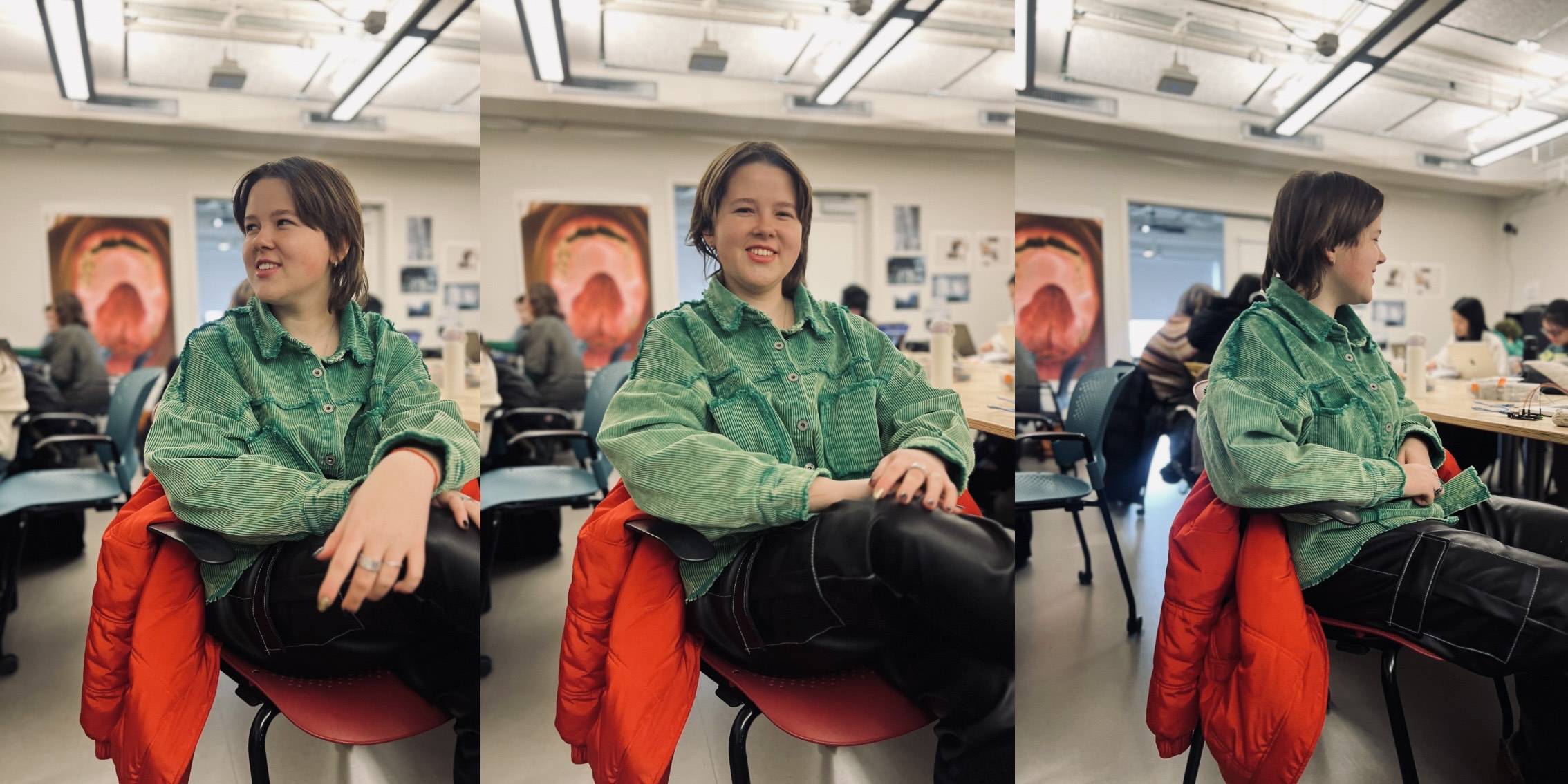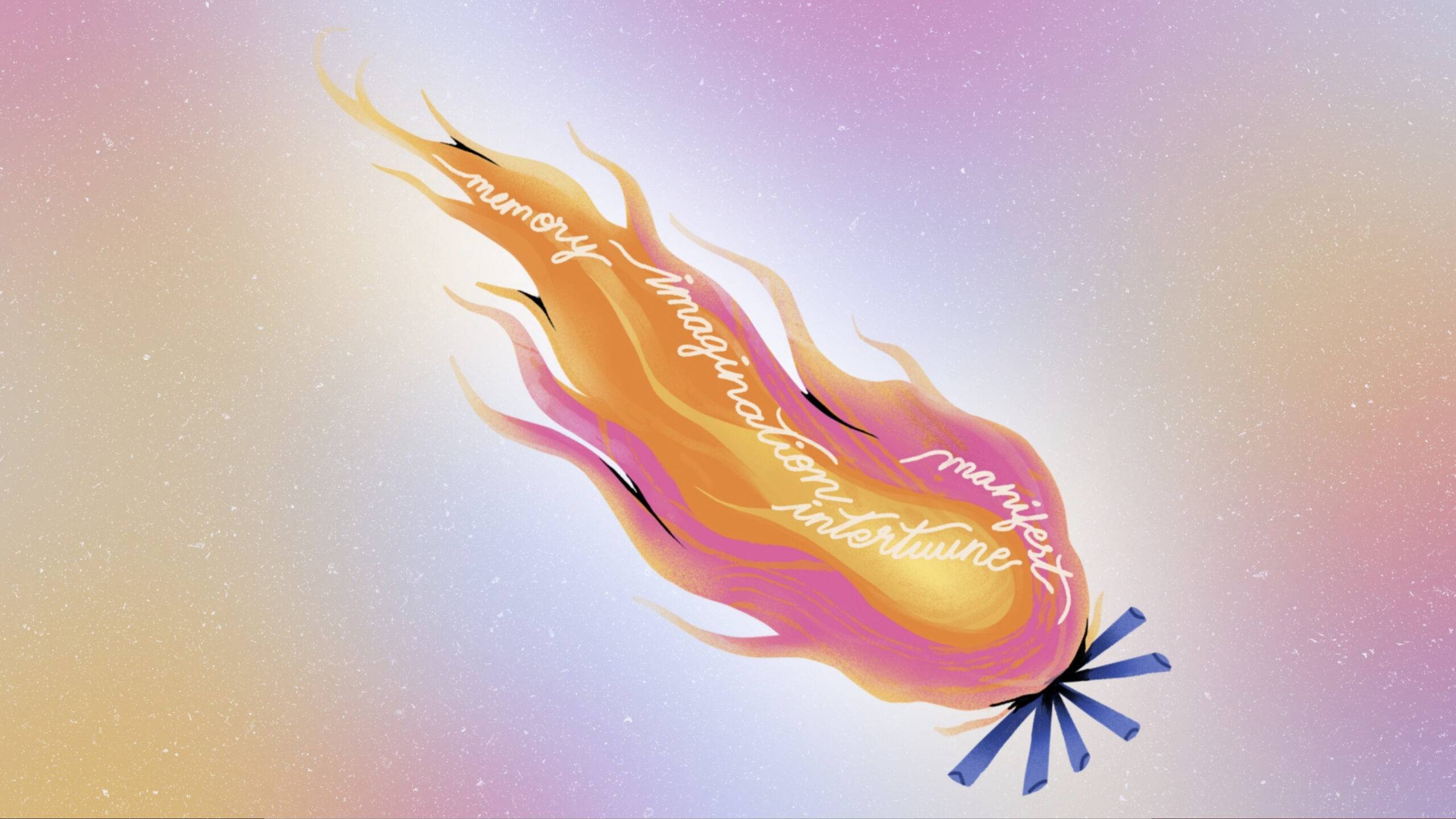
Illustration by Zach Cooper.
Protesters greeted Milo Yiannopoulos, an editor at Breitbart News, when he spoke at DePaul University this past May. Campus security was told to “stand passively and watch” while students associated with the Black Lives Matter movement crashed the stage in an event emblematic of the greater political contention consuming America.
In wake of DePaul administration’s failure to handle both protesters and Yiannopoulos’ controversial appearance, both liberal and conservative groups on campus used the incident as a staging ground to demand change.
Members of the college’s Black Leadership Coalition (BLC) recently released a list of demands, which included the creation of tenured positions in administration for diversity advocates and the modification of enrollment strategies in order to admit more African American students.
Although the university has not yielded to the Black Leadership Coalition’s demands, DePaul’s president Dennis Holtschneider announced his resignation the next summer, saying he was reluctant to “define the next strategic direction for another president to manage.”
Students on campus expressed frustration at Holtschneider for his unwillingness to adopt a concrete stance. Conservative students criticized Holtschneider for caving to the demands of liberal groups (in ways such as banning speakers such as Yiannopoulos and Daily Wire editor-in-chief Ben Shapiro), while liberal students criticized him for not banning the controversial speaker sooner.
“The administration has taken their side,” said Emily Thompson, a Peace, Justice, and Conflict Studies major at DePaul, in an email exchange with F Newsmagazine. “Speakers like Milo love to come to college campuses and mess things up for the students there. He wants to initiate a fight, and he was certainly successful.” Why this has become a conflict between conservative groups and African American student organizations, such as the BLC, is unclear to many students.
The group that invited Yiannopoulos said that race was not the issue that really mattered regarding the incident. “It has nothing to do with race, none of this should ever be a race issue — this is about people, this is about individuals,” said John Minster, vice president of the DePaul College Republicans, in an interview with F. “When we change enrollment standards to try to gerrymander what kind of racial makeup we have at this school […] you’re discriminating against other students who might be more deserving of a place here.”
Amidst the controversy and protests, the DePaul College Republicans has thrived: Minster reported that following the incident in May, attendance at meetings had doubled, making the group “one of the larger groups on campus.” Energized by the influx of both attention and members, leaders within the DePaul College Republicans aim to become more active on campus.
On September 13, College Republicans left messages written in chalk on the sidewalk outside university buildings criticizing DePaul’s administration — reminiscent of the “Chalkening” that occurred earlier this year. Garnering attention from students and passersby, the writings ranged from statements advertising club meeting times to more inflammatory messages such as “build a wall” or “we don’t care about your feelings.”
DePaul administration later released statements criticizing both supporters of Yiannopoulos as well as protesters. Holtschneider, before announcing his resignation, published a letter in which he stated that speakers such as Yiannopoulos were “unworthy of university discourse” and “exploit the differences within our human community to their own benefit.” He also went on to express disappointment in protesters who harassed the speaker and disrupted the event.
Meanwhile, such events held by the College Republicans attracted more than just new members — weekly meetings are now joined even by Democrats and more liberal students interested in learning about the the viewpoints of others. “It’s really easy for some of our more liberal students to demonize us online or wherever without actually sitting down and meeting us,” said Minster.





















